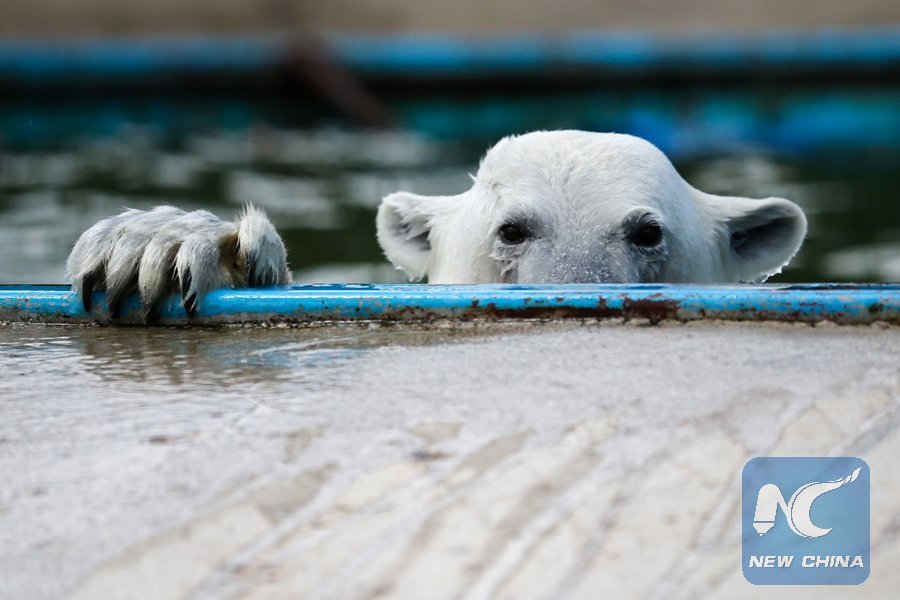
A Polar bear swims in a pool at the center of reproduction of rare species of animals at the Moscow Zoo in the village of Sychevo, Moscow Region on July 24, 2017. (AFP PHOTO/Maxim ZMEYEV)
WASHINGTON, Feb. 1 (Xinhua) -- Polar bears, already struggling as climate change melts Arctic sea ice, need more food to survive than previously thought, U.S. researchers said Thursday.
The rate of energy consumption of these iconic animals, as calculated in the current study published in the journal Science, was 1.6 times higher than previous research has predicted.
"They need to be catching a lot of seals," Anthony Pagano, a Ph.D. candidate at the University of California at Santa Cruz, said in a statement.
Polar bears rely almost exclusively on a fat-rich diet of seals, which are most efficiently hunted from the surface of sea ice.
However, the abundance of sea ice across the Arctic is decreasing at a rate of 14 percent per decade, which is likely reducing polar bears' access to their prey.
In April of 2014, 2015, and 2016, Pagano and colleagues aimed to better understand the energy expenditure of polar bears during this critical season by capturing nine females on the sea ice of the Beaufort Sea.
They measured the metabolic rates of each bear by analyzing blood and urine samples upon capture and then again at recapture, after eight to 11 days.
As well, the bears were equipped with GPS collars that also collect video records of activity during daylight.
The results revealed higher-than-expected metabolic rates, meaning polar bears need a lot of fat-rich prey.
What's more, five of the nine bears in the study lost body mass, meaning they weren't catching enough fat-rich marine mammal prey to meet their energy demands.
"This was at the start of the period from April through July when polar bears catch most of their prey and put on most of the body fat they need to sustain them throughout the year," Pagano said.
A recent population estimate indicated the polar bear population has declined by about 40 percent over the past decade.
"Ice loss, if unabated, will eventually cause the extinction of polar bears in the wild," John Whiteman of the University of New Mexico warned in a related perspective article. "But continued research is needed to understand the climate-related pressures that polar bears face."

